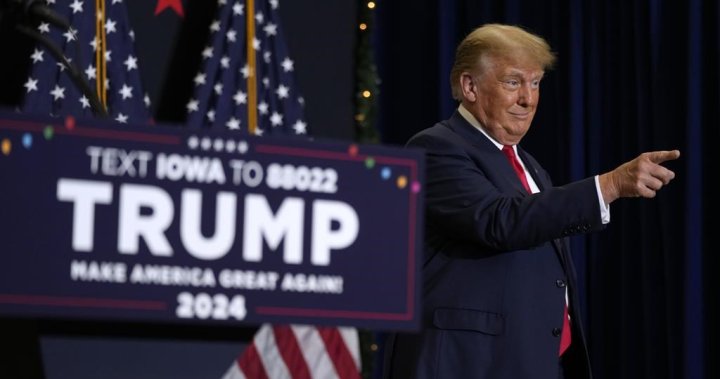
As U.S. states bar Trump from the 2024 ballot, will any rulings stick?
Global News
The U.S. Supreme Court may rule in the coming days on whether Trump is allowed to run, after two states disqualified him from the primary ballot for engaging in insurrection.
Is Donald Trump eligible to run for U.S. president again? What is the role for courts and state election officials in making that determination, and what legal standard should apply if a political candidate is accused of insurrection?
These are the questions experts say are likely to be weighed quickly by the U.S. Supreme Court in the coming weeks — or even days — now that two states have disqualified Trump from appearing on their Republican presidential primary ballots. The decisions stem from legal challenges being pursued in several states that argue the former president violated the so-called “insurrection clause” of the U.S. Constitution.
With the state primaries fast approaching and several similar cases still pending, all eyes are turning to how the Supreme Court will treat the issue.
A federal appeals court is set to weigh on whether Trump can be prosecuted for his efforts to overturn the 2020 election and his actions leading up to the Jan. 6, 2021, attack on the U.S. Capitol — a case that’s still set to go to trial in early March. But the Supreme Court may not agree with the argument some states are making that he is constitutionally barred from running, experts say.
“I think it’s likely they will rule quickly and may even rule for Trump,” said Stuart Streichler, a constitutional law expert and professor at the University of Washington.
“Even putting aside whether he engaged in insurrection or not, there is a lot for the court to consider here.”
Section 3 of the 14th Amendment to the U.S. Constitution bars anyone from holding public office if they engaged in “insurrection or rebellion” after previously swearing an oath in support of the Constitution as “an officer of the United States.”
The provision was enacted in 1868 after the Civil War to prevent former members of the pro-slavery Confederacy from serving in the U.S government.













